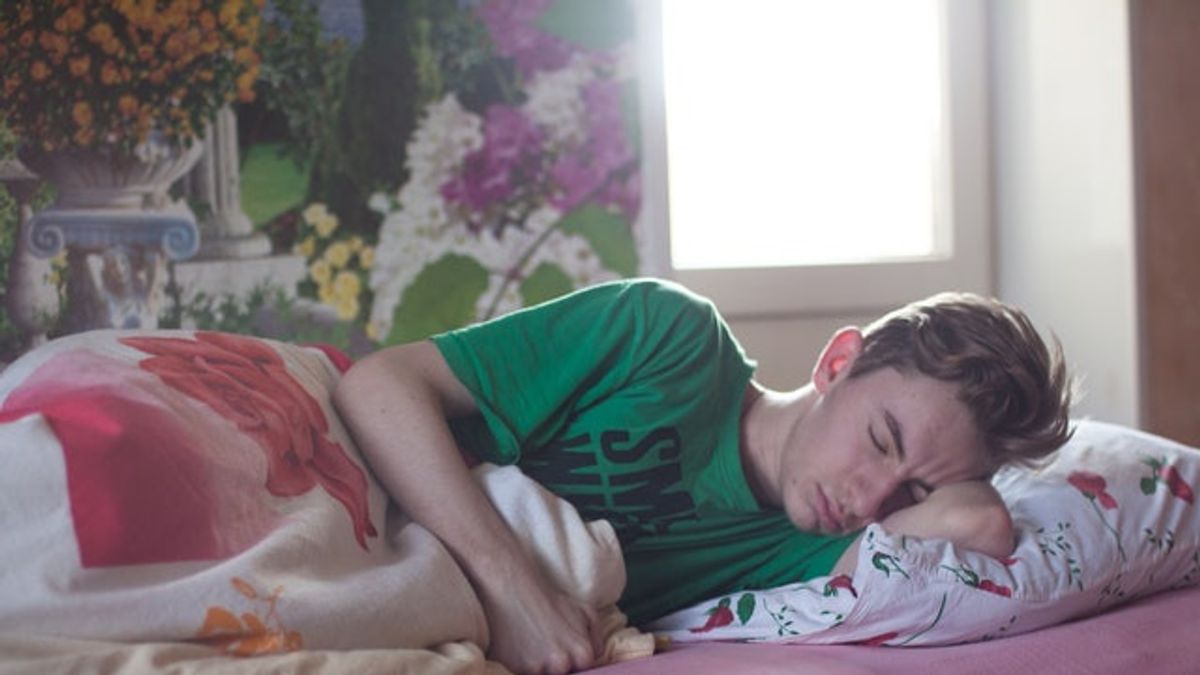JAKARTA - After a whole day's activities, sleep becomes an important part of restoring the body's condition so that it is ready for activities the next day. Before going to bed, some of you may prefer to keep the bedroom light on while sleeping. But a recent study actually found that sleeping with the lights in a room on can be bad for health.
According to research published in the journal Proceedings of the National Academy of Sciences, sleeping in a well-lit room can cause a higher heart rate at night and lead to insulin resistance the next day. This conclusion was obtained after the researchers observed two groups of 10 healthy adults. In these observations, all study participants wore heart monitors during their sleep.
"Our study showed that the participants' heart rates increased when they slept in a well-lit room. This led to even though they were in sleep, the autonomic nervous system was activated," said Dr. Daniela Grimaldi, researchers from Northwestern University, as quoted from Live Science, Monday, June 6.
This autonomic nervous system regulates involuntary body processes such as breathing, heart rate, to pupil dilation. If the autonomic nervous system increases the heart rate at night, that's bad. This is because heart rate and other cardiovascular parameters are usually lower at night and higher during the day.
The research team also ran several tests to estimate the participants' insulin resistance in the morning. The hormone insulin normally helps cells to take sugar from the bloodstream. But when cells are resistant to insulin, they can't take up sugar easily. As a result, the body produces more insulin to compensate. Over time, the cells become resistant which causes a person's blood sugar levels to spike. Well, from these tests, researchers found that exposure to room light during sleep can increase a person's insulin resistance level the next day.
"The results of this study indicate that exposure to lighting in the room while sleeping can increase insulin resistance and cardiovascular regulation, which are risk factors for heart disease, diabetes, and metabolic syndrome. It is important for people to avoid or minimize the amount of light exposure while sleeping," said Dr. Phyllis Zee, researchers from Northwestern University, as quoted from Science Daily.
The results of this study are important findings, especially for those who live in urban areas where indoor and outdoor night light exposure is increasingly common. To prevent health conditions from becoming worse due to exposure to light, researchers provide tips to reduce light during sleep. Here are some of them that you can try to apply.
Don't turn on the lightYou can condition a dark room by turning off the lights before bedtime. But if you need to turn on the light during sleep for example for safety purposes, make a dim light closer to the floor.
Use lights with the right colorThe color of the light is important and can affect a person's sleep state. So don't use white or blue light and keep it away from sleeping people.
Wear an eye maskIf you can't control the light coming from outside. You can use an eye mask that can provide a dark situation when sleeping. You can also move the bed so that the light from outside does not shine on your face.
The English, Chinese, Japanese, Arabic, and French versions are automatically generated by the AI. So there may still be inaccuracies in translating, please always see Indonesian as our main language. (system supported by DigitalSiber.id)








